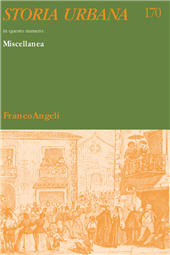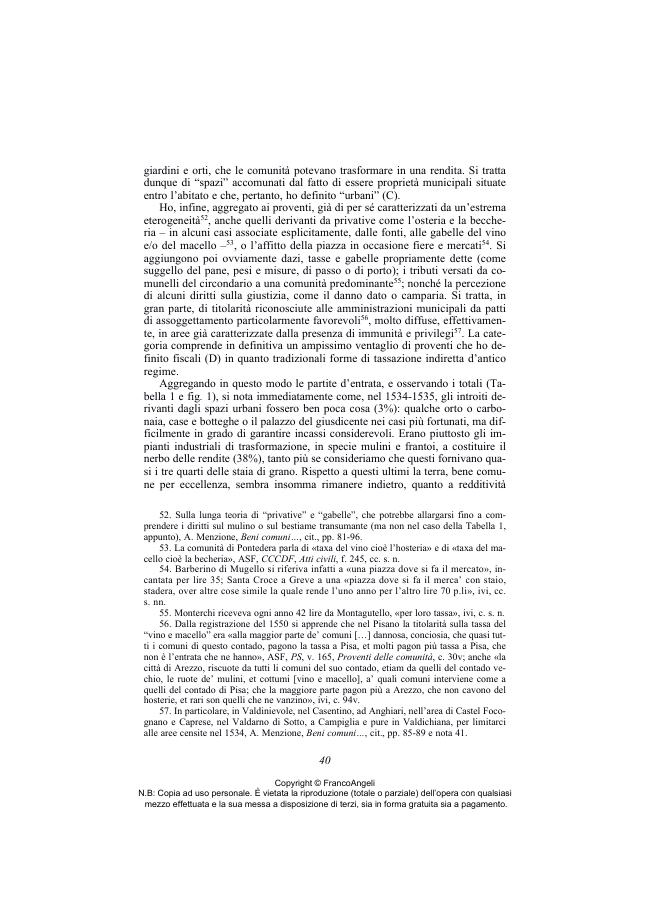L'entrate et proventi de' comuni, ville, popoli et luoghi del nostro Contado et Dominio : le risorse delle comunità soggette a Firenze agli inizi del principato (1534-1535)
P. 27-51
In 1534, the Cinque conservatori magistracy ordered a general census of the public revenues of the Florentine subject communities (although the privileged ones were exempted). Thus, about 160 communities from the Contado and the Distretto sent a description of their common lands, mills, real estate, and special fiscal rights. This is the first known example of a general inquiry of this kind by the Florentine State. This article offers an analysis of the data collected by the Cinque in 1534-1535 (Appendix), aiming to shed light on the financial situation of the Florentine subject communities right after the Siege of Florence.
The different entries for each community have been divided into four categories: (A) resources from the terrain (pastures, common and open fields, community's fields, woodland, etc.), (B) processing plants (like mills or oil-mills), (C) urban spaces (which includes houses, shops, urban gardens, castle's moats), and (D) fiscal revenues (tolls, duties and taxes collected by the community, and monopoly rights on some economic activities, like the slaughterhouse or the inn). The census of 1534-1535 is less detailed in comparison to the later one of 1550, and it is incomplete. But, on the other hand, this operation can be considered an early step towards the administrative tutorship which would be realized under Cosimo I and his successors, aiming to preserve (and eventually to increase) the fiscal potential of the subject communities. [Publisher's text]
Ist Teil von
Storia urbana : rivista di studi sulle trasformazioni della città e del territorio in età moderna : 170, 3, 2021-
Artikel aus derselben Ausgabe (einzeln erhältlich)
-
Informationen
ISSN: 1972-5523
KEYWORDS
- Principato mediceo, Alessandro de' Medici, Stato territoriale, Comunità soggette, Beni comuni, Fiscalità
- Medicean Principality, Alessandro de' Medici, Territorial State, Subject Communities, Commons, Taxation



